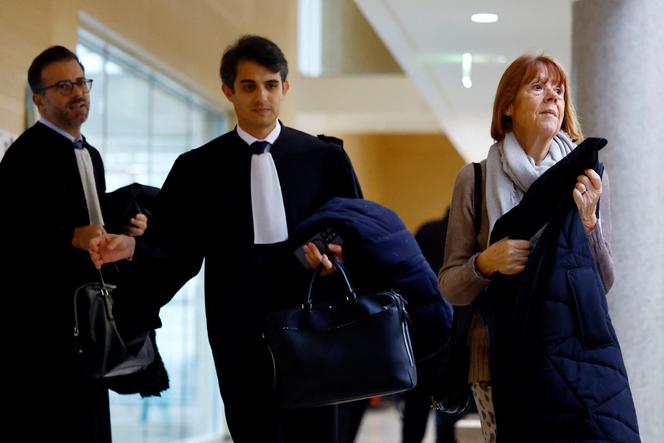


Gisèle Pelicot's lawyers, Stéphane Babonneau and Antoine Camus, have done a lot of talking since the trial opened. They have asked far more questions than the prosecutors. They were the ones who fought, against the defense and against the presiding judge, to obtain that the video evidence be broadcast to the audience, and not behind closed doors. Those in the court clung to the calm and rationality of their interventions when the debates became brutal or delirious. Lawyers for plaintiffs rarely play the leading role in criminal courts, but this was the case in the Pelicot rape trial.
The two took to the floor for the last time, on Wednesday, November 20. Speaking for one hour each, they pleaded in the same manner as they had done during the hearing: somber, refined, raising the debate without raising the volume.
Camus was the first to take the floor and started by describing how he was delighted that his client had decided not to proceed behind closed doors. Yes, it was necessary, he said, "to open the doors of this room, to invite the whole of society to take up this case, to make our debates the breeding ground for a new awareness, a change in mentalities, a better future that would finally break with a violence that we would like to see from another age. How, in France in 2024, can a woman still suffer what was inflicted on Gisèle Pelicot for at least 10 years? How in France, in 2024, can we find 50 individuals within a 50 km radius to take sexual advantage, without the slightest exchange, of a body that looks dead and has to be rolled over manually to make any movement?"
Making this trial public also made it possible, he stressed, "to see how rape is still defended, in France, in 2024": Gisèle Pelicot was jostled, treated rudely, and humiliated by the co-defendants' lawyers, who sometimes suggested she had colluded with her ex-husband Dominique Pelicot. As late as Tuesday, some were still attributing direct responsibility to her for her ex-husband's actions, accusing her of failing to interpret the first "signals." It was further implied that she could not have been completely ignorant of what was taking place for 10 years. Camus denounced this as "a form of courtroom abuse": "Certain defense strategies no longer have any place in a courtroom in France, in the 21st century. If the defense is free, it also reflects who we are."
The closing arguments were less about Dominique Pelicot than about his 50 co-defendants, accused of raping Gisèle Pelicot while she was drugged by her husband. In order to "advance our understanding of the whys and the hows," Camus looked for the common denominator between them. "Not all were sexually abused as children or teenagers. Not all are perverts whose psychiatrists have diagnosed paraphilias. Not all are pornography addicts. Not all have criminal records. Not all were in a precarious emotional and sexual state." He eventually arrived at the one common denominator: "Free will."
You have 61.88% of this article left to read. The rest is for subscribers only.
